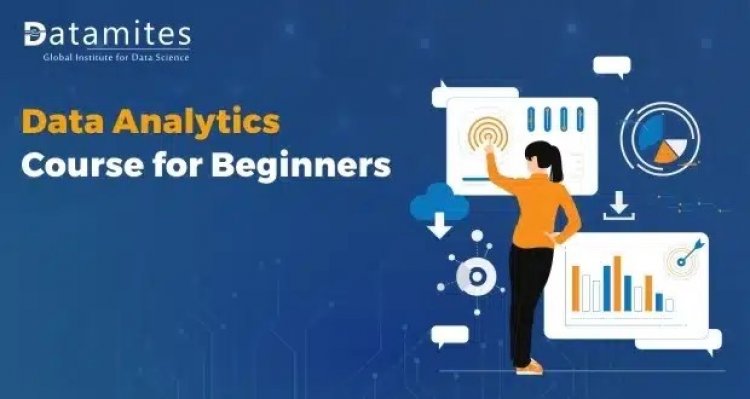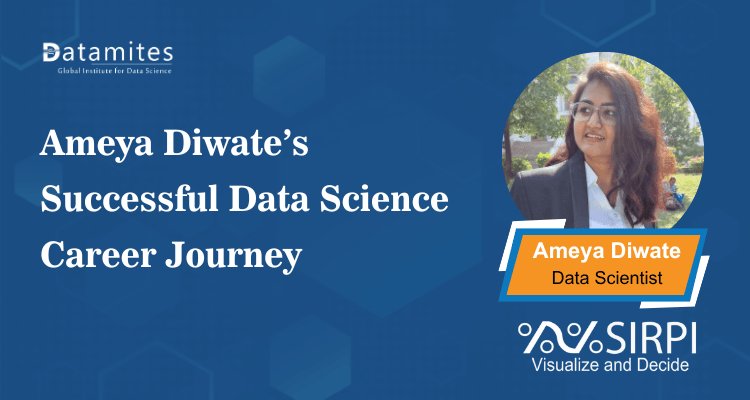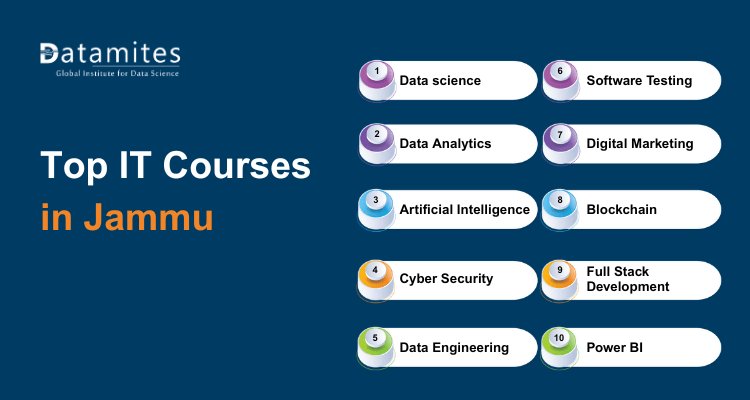Beginner’s Guide to Data Analytics Course

Data analytics is the process of using statistical and computational methods to analyze and interpret data to gain insights and make informed decisions. In today’s world, data is being generated at an unprecedented rate, and the ability to extract insights from it has become a critical skill for individuals and organizations alike. If you are interested in learning data analytics, taking a course is a great way to get started.
A typical data analytics course for beginners covers a range of topics, including data collection and preprocessing, exploratory data analysis, statistical inference, machine learning, and data visualization. Through a combination of lectures, hands-on exercises, and case studies, you will learn how to analyze and interpret data to gain insights and make data-driven decisions. By the end of the course, you will have a solid foundation in data analytics, which you can further build on with more advanced courses or specialized training.
How does Beginner benefit from Data Analytics?
Beginners can benefit from learning data analytics in several ways:
- Career Advancement: Data analytics is in high demand, and the ability to analyze and interpret data can be a valuable skill in a variety of industries. Learning data analytics can lead to career advancement opportunities or help you transition into a new field.
- Data-Driven Decision Making: Data analytics helps individuals and organizations make informed decisions by providing insights based on data. Data analytics training courses can help individuals and organizations make informed decisions by providing insights based on data. As a beginner in the course, individuals will learn how to use data to identify trends, patterns, and outliers that can inform decision-making, which can then be applied to real-world scenarios.
- Problem-Solving: Data analytics requires a combination of technical skills and critical thinking. As a beginner, you will develop problem-solving skills by using data to identify and solve business problems.
- Improved Efficiency: Data analytics can help individuals and organizations become more efficient by identifying areas for improvement and optimizing processes based on data insights.
- Personal Growth: Learning data analytics can be a rewarding experience that helps individuals develop new skills and gain confidence in their abilities. As a beginner, you will have the opportunity to challenge yourself and learn new things while exploring the fascinating world of data.
Refer these below articles:
- Data Science vs. Big Data vs. Data Analytics – Know the Difference
- Why is Python Essential for Data Analysis and Data Science?
- Data Science Vs Data Analytics
What is the role of a data analyst?
The role of a data analyst is to collect, process, and analyze large sets of data to identify trends, patterns, and insights that can inform decision-making. The specific responsibilities of a data analyst can vary depending on the industry, company, and job title, but generally involve the following tasks:
- Data Collection: Data analysts are responsible for collecting data from various sources, including databases, surveys, and other data-gathering tools.
- Data Cleaning and Preprocessing: Data analysts must clean and preprocess the data to ensure that it is accurate and consistent. This involves removing duplicate records, fixing errors, and formatting the data for analysis.
- Exploratory Data Analysis: Data analysts use statistical methods and data visualization tools to explore the data and identify patterns, trends, and outliers.
- Statistical Analysis and Modeling: Data analysts use statistical methods and machine learning algorithms to build models that can be used to predict future trends and inform decision-making.
- Data Visualization and Reporting: Data analysts must be able to present their findings in a clear and concise manner using data visualization tools and reports that are easily understandable by non-technical stakeholders.
Overall, the role of a data analyst is to help organizations make data-driven decisions by providing insights based on data analysis and modeling. Data analysts work closely with stakeholders across different departments to ensure that the insights they provide are relevant, accurate, and actionable.
Read these below articles:
- How much will be the Data Analytics Course Fees in Chennai?
- How much will be the Data Analytics Course Fees in Pune?
- How much will be the Data Analytics Course Fees in Hyderabad?
The Rise of Data Analytics
Data analytics has become a critical field in today’s data-driven world, with companies and organizations relying on data insights to make informed decisions. As a result, there is a growing demand for skilled data analysts who can collect, process, and analyze large sets of data to identify trends and patterns.
Beginners should consider a career in data analytics for several reasons. First, data analytics is a high-demand field with a growing number of job opportunities. The data analyst job is expected to continue growing in the coming years, with a projected 11% growth rate from 2020 to 2030 according to the US Bureau of Labor Statistics.
Second, data analytics offers a competitive salary and opportunities for career advancement. As data analysts, beginners can expect to earn a competitive salary and have opportunities to move into leadership roles as they gain experience and develop their skills.
- The salary of a data analyst in the USA ranges from USD 74,842 per year according to an Indeed report.
- The salary of a data analyst in UK ranges from GBP 35,418 per year according to a Glassdoor report
- The salary of a data analyst in India ranges from INR 6,00,000 per year according to a Glassdoor report.
Third, data analytics is a versatile field with diverse opportunities for specialization. Beginners can choose to specialize in areas such as business intelligence, data science, or machine learning, depending on their interests and career goals.
Fourth, Data analytics training can open up opportunities for impactful work. As beginners in data analytics, individuals can work on projects that have a tangible impact on businesses and organizations, helping them make informed decisions and improve their operations based on the insights and analysis provided through the training.
Finally, pursuing a career in data analytics can provide beginners with personal growth opportunities. It’s a field that requires continuous learning and skill development, offering the chance for individuals to continue to grow and improve throughout their careers.
The rise of data analytics has created a high-demand field with diverse opportunities for beginners. Pursuing a career in data analytics can lead to a fulfilling and rewarding career path with competitive pay, opportunities for career advancement, and the chance to make a meaningful impact on organizations.
Also refer these articles:
- What are the Best IT Companies in Chennai?
- What are the Best IT Companies in Pune?
- What are the Top IT Companies in Bangalore?
What are the essential skills of a Data Analytics Course?
Data analytics requires a range of technical and non-technical skills. Here are some essential skills that beginners can expect to learn in a data analytics course:
- Data Wrangling: Data wrangling involves cleaning, transforming, and preparing data for analysis. Beginners will need to learn how to work with different types of data and use tools such as SQL and Python to clean and prepare data for analysis.
- Statistical Analysis: Beginners will need to learn statistical analysis techniques such as regression, hypothesis testing, and descriptive statistics. These techniques are used to identify trends and patterns in data and make predictions based on data analysis.
- Data Visualization: Data visualization involves presenting data in a visually appealing and understandable format. Beginners will need to learn how to use tools such as Tableau and Excel to create charts, graphs, and dashboards that communicate insights effectively.
- Machine Learning: Machine learning involves using algorithms to automatically learn patterns in data and make predictions based on that data. Beginners will need to learn how to use tools such as sci-kit-learn and TensorFlow to build and train machine learning models.
- Communication: Effective communication skills are essential for data analysts. Beginners will need to learn how to communicate data insights to stakeholders who may not have a technical background. They will also need to be able to work effectively in teams and collaborate with stakeholders from different departments.
- Problem-Solving: Data analysts need to be able to think critically and solve complex problems. Beginners will learn how to approach problems systematically, use data to identify root causes and develop solutions that address underlying issues.
A data analytics course will provide beginners with a range of technical and non-technical skills that are essential for success in the field. These skills include data wrangling, statistical analysis, data visualization, machine learning, communication, and problem-solving.
Also read these articles:
- Why DataMites Institute for Data Analytics Course in Bangalore?
- Why DataMites Institute for Data Analytics Course in Chennai?
- Why DataMites for data analytics course in Pune?
How Data Analytics Certifications Benefit Beginners in the Field
Data analytics certifications can provide several benefits to beginners in the field, including:
- Demonstrating Skills: Certifications provide a way for beginners to demonstrate their knowledge and skills in data analytics to potential employers. Certification can be seen as proof that an individual has met a certain level of competency in the field.
- Competitive Advantage: Having a certification can provide a competitive advantage over other candidates who may not have the same level of credentials. This can help beginners stand out in a crowded job market and increase their chances of landing a job.
- Career Advancement: Certifications can also help beginners advance in their careers. Many employers value certifications and may be more likely to promote individuals who hold them.
- Skill Development: Pursuing a certification requires individuals to develop their skills and knowledge in specific areas of data analytics. This can help beginners build a strong foundation in the field and gain expertise in areas such as data visualization, machine learning, and statistical analysis.
- Industry Recognition: Many data analytics certifications are recognized by industry associations and organizations. This recognition can be valuable to beginners, as it demonstrates that the certification is respected and valued within the industry.
- Professional Network: Pursuing a certification can also provide beginners with opportunities to connect with other professionals in the field. This can help them build a professional network, which can be valuable for job opportunities, mentorship, and knowledge-sharing.
Data analytics certifications can provide several benefits to beginners in the field. They can demonstrate skills, provide a competitive advantage, help with career advancement, facilitate skill development, gain industry recognition, and build a professional network.
Certified Data Analyst Course
DataMites’ Approach to Providing Data Analytics Courses
DataMites is an education and training company that provides various courses related to data science, analytics, artificial intelligence, and machine learning. DataMites offers a Certified Data Analyst Course regarded as the best course in the field of Data Analytics. This course provides a comprehensive and in-depth learning experience, facilitated by lead trainers who are experts in the industry. By enrolling in this course, students can benefit from top-quality training that equips them with the skills and knowledge required to excel in the field of Data Analytics.
Here’s how DataMites is providing its Data Analytics course:
- Course Curriculum: DataMites has designed a comprehensive curriculum for their Data Analytics course, which covers all the essential concepts and techniques used in the field. The curriculum includes topics such as data visualization, data exploration, data preparation, statistical analysis, predictive modeling, and machine learning.
- Experienced Faculty: DataMites has a team of experienced faculty members who have several years of experience working in the data analytics industry. Their faculty members are highly knowledgeable and have hands-on experience in using various analytics tools and techniques.
- Online and Classroom Training: DataMites offers both online and classroom training for their Data Analytics course. DataMites provides online and offline data analytics courses to students which help them to learn at their own pace and from the comfort of their own homes. The classroom training program provides students with an interactive learning experience, where they can interact with their peers and faculty members.
- Hands-on Projects: DataMites provides hands-on projects to their students to help them gain practical experience in using analytics tools and techniques. These projects are designed to simulate real-world scenarios and give students a taste of what it’s like to work as a data analyst.
- Certification: DataMites offers certified data analyst course that is accredited by IABAC. The IABAC Certification is a testament to our commitment to providing high-quality data analytics training and ensuring industry-recognized standards are met.
- Placement support– DataMites offers a dedicated placement cell to provide placement support to their students. This cell assists students in finding suitable job opportunities in the data analytics industry and also provides career counselling and guidance to help them achieve their career goals. With the help of this placement cell, students can receive comprehensive support to enhance their career prospects and secure their desired job roles.
- Affordable Fees- DataMites offers data analytics courses at affordable fees, ensuring that students from diverse backgrounds can access high-quality training in this field. The institute provides flexible payment options, including instalment plans, which help students to manage their finances more effectively. The Certified Analysts Training Course fee, for instance, is available at a reasonable fee of INR 56,900, making it an accessible option for aspiring data analysts.
Overall, DataMites is providing its Data Analytics course through a combination of a comprehensive curriculum, experienced faculty, online and classroom training, hands-on projects, and certification.
What is Histogram
Summary
A beginner’s guide to data analytics course is an excellent starting point for anyone who wants to learn about the field of data analytics. This course covers the fundamental concepts and techniques used in data analytics and provides hands-on experience in using popular analytics tools. By enrolling in a data analytics course, beginners can gain valuable knowledge and skills that can help them to pursue a career in the field of data analytics. They can learn how to analyze data, create meaningful insights, and make data-driven decisions.
Enrolling in a beginner’s guide to data analytics course offered by a reputable data analytics institute such as DataMites is an excellent investment for individuals who wish to learn about data analytics and pursue a career in this exciting field. The course offers opportunities to work on real-world projects, enabling students to apply their knowledge to practical problems and gain hands-on experience that can be invaluable in their future careers.
Simple Exploratory Data Analysis
What is Monte Carlo Simulation?









